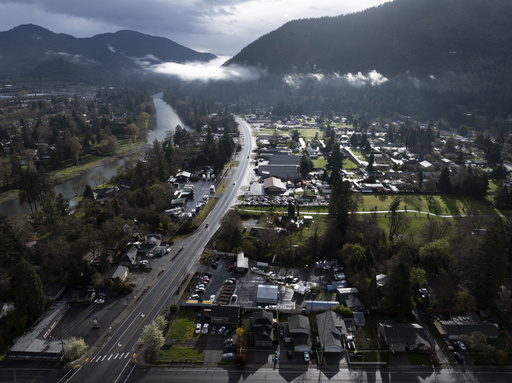
PORTLAND, Ore. — A judge from Oregon has instructed the city at the center of a pivotal U.S. Supreme Court decision regarding homeless encampments to halt the enforcement of its camping regulations temporarily. This directive follows a lawsuit filed by advocacy groups contesting the city’s regulations.
Josephine County Circuit Court Judge Brandon Thueson issued a temporary restraining order that prevents Grants Pass from enforcing its camping laws for a period of 14 days. During this timeframe, city officials are not permitted to cite, arrest, or impose fines on individuals camping anywhere within city limits, nor can they require anyone to vacate a campsite, as stipulated by the order.
Mike Zacchino, Grants Pass Information Coordinator, expressed in an email that the situation is significant and stated that the city is actively evaluating all factors to make an informed decision concerning the community. Requests for comments from the mayor and interim city attorney went unanswered.
The order came in response to a lawsuit submitted against the city by Disability Rights Oregon just last week. The advocacy organization claims that the city’s actions discriminate against individuals with disabilities and breach a state statute mandating that municipalities’ camping regulations be “objectively reasonable.”
A Supreme Court ruling from June has instigated new homeless policies nationwide, enabling cities to impose bans on outdoor sleeping and to penalize individuals for doing so, even when shelter options are insufficient. This ruling reversed an earlier decision from a California-based appeals court, which argued that prohibiting camping in the absence of shelter space constituted cruel and unusual punishment under the Eighth Amendment of the U.S. Constitution. The case attracted officials from diverse political backgrounds, who filed briefs emphasizing the necessity to overturn lower court rulings that they believed limited their capacity to manage encampments.
Grants Pass, a small community of roughly 40,000 residents nestled along the Rogue River in southern Oregon, has been grappling with homelessness for several years, with local parks becoming notable areas of concern. While the parks were favored by locals for their recreational spaces and playgrounds, many had turned into encampments plagued by drug use and waste.
Following the Supreme Court’s ruling, Grants Pass implemented a ban on camping across all city properties, with exceptions granted by the City Council. Council members identified two specific areas designated for the city’s considerable homeless population, aiming to redirect individuals away from public parks while still providing designated sleeping locations.
However, upon their election last month, the newly appointed mayor and City Council chose to shut down the larger of the two designated camps, which, according to Disability Rights Oregon’s claims, accommodated around 120 tents and limited the remaining campsite’s hours from 5 p.m. to 7 a.m., effectively requiring residents to dismantle their setups each morning and to transport their possessions throughout the day.
The two outdoor locations generally faced overcrowding with substandard conditions and were deemed inaccessible for individuals with disabilities due to loose gravel, as mentioned in the complaint.
“It is unconscionable to me to allow people to live there like that,” stated City Council member Indra Nicholas during discussions prior to the vote to close the larger campsite.
Grants Pass serves as a microcosm of the widespread national homelessness crisis affecting both large and small urban areas, alongside the ongoing dialogue about potential solutions.
In the previous year, there was an 18% increase in homelessness across the United States, a surge that can largely be attributed to a scarcity of affordable housing as well as the impacts of catastrophic natural disasters and increased migration in various regions of the country.
This article has been revised to accurately reflect the correct spelling of Grants Pass City Council member Indra Nicholas’s last name, correcting it from Nichols.

